August 1912
| << | August 1912 | >> | ||||
|---|---|---|---|---|---|---|
| Su | Mo | Tu | We | Th | Fr | Sa |
| 1 | 2 | 3 | ||||
| 4 | 5 | 6 | 7 | 8 | 9 | 10 |
| 11 | 12 | 13 | 14 | 15 | 16 | 17 |
| 18 | 19 | 20 | 21 | 22 | 23 | 24 |
| 25 | 26 | 27 | 28 | 29 | 30 | 31 |
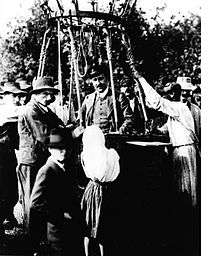
August 7, 1912: Victor Hess (center) discovers cosmic rays
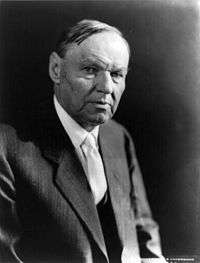
August 17, 1912: Legendary lawyer Clarence Darrow acquitted of criminal charges
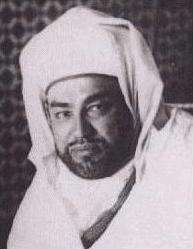
August 12, 1912: Yusuf becomes new Sultan of Morocco as brother flees
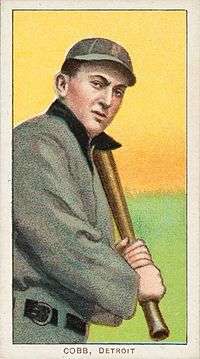
August 11, 1912: Baseball legend Ty Cobb claims to have "killed a man" in Detroit
The following events occurred in August 1912:
August 1, 1912 (Thursday)
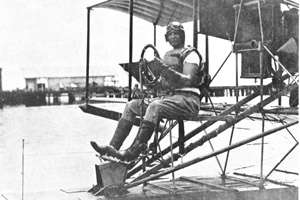
Alfred Cunningham USMC
- Alfred A. Cunningham of the United States Marine Corps made his first solo flight, after 2 hours and 40 minutes of instruction, of an airplane, becoming the first U.S. Marine pilot.[1]
- The Yuaikai, later called the Nihon Rōdō Sodomei or Japan Federation of Labor, was founded by Bunji Suzuki. At its peak, it would have 100,000 workers in its ranks.[2]
- A train accident at Rio de Janeiro killed 10 and injured 50.[3]
- The Progressive Party announced that it would not allow African-Americans from Southern states to be delegates at its organizing convention in Chicago, with the approval of former President Roosevelt. Roosevelt emphasized that from Northern states, "there would be a number of negro delegates; more, in fact, than ever before figured in a National convention".[4]
- Born: Frank K. Edmondson, American astronomer, in Milwaukee (d. 2008)
August 2, 1912 (Friday)
- The throwing of a bomb in the Ottoman Empire city of Kotschana (now Kočani, Republic of Macedonia), led to a riot by the residents there, with 140 killed by Turkish soldiers who suppressed it. Eleven people were killed when a bomb went off in the town square, followed a few minutes later by another fatal attack.[5]
- The U.S. Senate voted 51-4 to extend the Monroe Doctrine to protect the Americas from foreign corporations.[6]
- Tibetans were routed by Chinese soldiers at Lhasa.[3]
- The gunboat USS Tacoma was ordered to proceed from Guantanamo to Bluefields, Nicaragua.[7]
August 3, 1912 (Saturday)
- "Baby Seals Blues" was published in the form of sheet music; according to historian Rudi Blesh, the song by Arthur "Baby" Seales was the first blues song to use the word "blues" in its title, with "Dallas Blues" appearing the next month on September 28, while other sources describe "Dallas Blues" as having been introduced in March 1912.[8]
- An attack by soldiers of Montenegro, against a Turkish border post, killed 30 Turks and 12 Montenegrins.[3]
August 4, 1912 (Sunday)
- One hundred U.S. Marines and Navy men arrived on the USS Annapolis landed at Corinto in Nicaragua to protect American interests, while the USS Tacoma arrived at Bluefields on Tuesday.[9] The forces assisted in the defeat, on September 24, of the rebel forces led by General Luis Mena.[10]
- Turkey's Senate voted to give the sultan power to dissolve parliament.[3]
- Mount Etna erupted in Sicily.[3]
- Turkey's Parliament was dissolved after a vote of no confidence.[11]
- Nine members of an English boy scout troop, between the ages of 11 and 14, drowned along with their scoutmaster, when their boat capsized in the sea near the Isle of Sheppey, off the coast of the county of Kent.[12] The deaths of the scouts were mourned as a national tragedy, and then-First Lord of the Admiralty Winston Churchill had the destroyer HMS Fervent bring their flag-draped coffins to London for the funeral.[13]
- Born:
- Raoul Wallenberg, Swedish diplomat and humanitarian who rescued tens of thousands of Hungarian Jews during World War II, then disappeared into Soviet captivity in 1947; in Lidingö Municipality (presumed dead, 1947)
- Jandhyala Papayya Sastry, Indian poet, in Kopparu, Guntur district, Andhra Pradesh (d. 1992)
- Virgilio Piñera, Cuban poet, in Cárdenas (d. 1979)
- Aleksandr Danilovich Aleksandrov, Soviet mathematician, in Volyn, Ryazan Oblast (d. 1999)
August 5, 1912 (Monday)
- In Chicago, the Progressive Party, nicknamed the "Bull Moose" Party to rival the Republican elephant and Democrat donkey, called itself to order as its founding convention opened at noon.[14]
August 6, 1912 (Tuesday)
- Theodore Roosevelt announced his 1912 platform at the Chicago convention of the Progressive Party.[15]
- U.S. President Taft asked Congress to fix maximum tolls for the Panama Canal.[3]
August 7, 1912 (Wednesday)
- Physicist Victor Hess of the Vienna Institute for Radium Research, in the Austro-Hungarian Empire, became the first person to discover cosmic rays. Hoping to build upon the research of Theodor Wulf, who had found that radioactive emission from Earth decreased measurably at higher altitudes, Hess sought to measure the decrease by venturing to greater heights in a balloon. On his seventh flight, he lifted off with a pilot and a meteorologist from Aussig (now Ústí nad Labem in the Czech Republic). To his surprise, the electroscopes on his balloon began measuring an increase in radiation at 5,350 feet, after a steady decrease during the ascent, and at 15,000 feet the amount doubled, showing that penetrating radiation was entering the atmosphere from a source other than the Sun.[16] Hess called the rays Höhenstrahlung, radiation from above.[17]
- The Progressive Party nominated Theodore Roosevelt as its candidate for President of the United States and California Governor Hiram Johnson for vice-president.[18]
- Three employees of the Union American Cigar Company at 28th and Smallman in Pittsburgh were killed, and 12 seriously injured, after a 24-ton water tank fell through the roof and the sixth floor, then into the fifth.[19]
- Woodrow Wilson accepted the Democratic nomination for president, which had offered the previous month at the convention in Baltimore. The New Jersey Governor spoke at his home in Sea Girt, New Jersey, before a group of other Democrats who were state governors, and a crowd of 6,000 supporters.[20] New technology was used to capture the moment on phonographic records and films, so that American voters could see and hear the candidate.[21]
- Died: François-Alphonse Forel, 71, Swiss scientist who pioneered limnology, the study of the ecology of freshwater lakes
August 8, 1912 (Thursday)
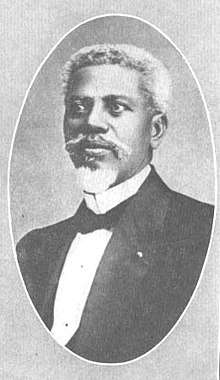
President Leconte
.jpg)
Pope Pius X
- A mine explosion in the German village of Gerthe, near Bochum in Westphalia killed 103 men at the Lothringen Coal Company.[22]
- Cincinnatus Leconte, President of Haiti, was killed in an accidental explosion at the presidential palace in Port-au-Prince. The President shared his residence with an arsenal of gunpowder in the basement, and the first blast occurred after an early morning fire had started. The legislature named General Tancrède Auguste as the new President that afternoon.[23]
- Friederich Krupp AG, the Krupp family armaments company, celebrated its centennial with the Kaiser giving the address. Accompanying the Kaiser to the ceremony at Essen were the Chancellor and many of his cabinet, and Prince Henry.[24]
- Pope Pius X issued an encyclical about abuse of the indigenous tribes in the Putumayo region of Peru.[3]
- Died: Ross Winn, 40, American anarchist and newspaper publisher
August 9, 1912 (Friday)
- An earthquake in Turkey near the Dardanelles killed thousands of people. There was a total destruction of the towns of Şarköy and Çorlu, and 300 dead in Mürefte (formerly Myriophyton) and 80 in Ganos-Hora, and .[25] Chorlu was consumed by fire, reportedly by a lantern being toppled by the quake.[26]
- Kosovo Albanian rebel leaders presented a list of 14 demands to one of the viziers of the Ottoman Empire. The Turkish leadership would agree to most of the proposals.[27]
- The Panama Canal bill passed the U.S. Senate 47-15.[28]
- Born: Anne Brown, African-American soprano who was the first person to portray "Bess" in the opera Porgy and Bess; in Baltimore (d. 2009)
- Died: Candida Maria of Jesus, 67, Spanish Roman Catholic saint, founder of the Hijas de Jesús; canonized 2010
August 10, 1912 (Saturday)
- English author Adeline Virginia Stephen married author Leonard Woolf to become Virginia Woolf.[29]
- The Republic of China's provisional government enacted its election law, creating a lower house of parliament, and limiting voting rights to male citizens who were at least 21, had two years residency in their district, and met property and educational restrictions.[30]
- Born: Jorge Amado, Brazilian author, in Itabuna (d. 2001)
August 11, 1912 (Sunday)
- Major league baseball star Ty Cobb was in Detroit when he was jumped by three hoodlums while on his way to catch a train to Syracuse, New York, to appear for the Tigers in an exhibition game against the minor league Syracuse Stars, and cut on the back by a knife.[31] He played the next day while wearing "a blood-soaked, makeshift bandage", and would later tell biographer Al Stump that he had beaten one of his attackers to death.[32] However, lawyer and baseball fan Doug Roberts researched coroner records and press reports, and found no record of a body being found with head trauma during the summer of 1912, nor of mention in the Detroit newspapers, although Cobb was treated for a half inch long knife wound.[33]
- An attack by Zapatista rebels on a train near Mexico City killed 35 soldiers and 20 civilians.[3]
- Born:
- Thanom Kittikachorn, Prime Minister of Thailand 1963-73, in Ban Nhong Pluong, Tak Province (d. 2004)
- Howard Lee Hale, American farmer and polio victim who survived longer than any other person in an iron lung, from 1944 until his 1976 death;[34]
- Norman Levinson, American mathematician, in Lynn, Massachusetts (d. 1975)
August 12, 1912 (Monday)
- Sultan Mulay Hafid, who signed the agreement to place Morocco under French control, abdicated his throne, in favor of his younger brother, Mulay Yusuf.[35]
- An army of 15,000 Kosovar Albanians marched on the Üskub (now Skopje in the Republic of Macedonia), at the time one of the European outposts of the Ottoman Empire, and expelled the Turkish administrators and Serbian residents there. Serbia would send troops in response, retaking the city and driving out the remaining Ottomans from Macedonia after the Battle of Kumanovo on October 23.[36]
- A military aviation branch was created for the Russian Army, beginning what would become the Soviet Air Forces.[37]
- Keystone Pictures Studio was formed by filmmaker Mack Sennett, producing comedies, most notably those of the "Keystone Cops".[38]
- A record seven convicts were put to death in the electric chair at Sing Sing, the New York penitentiary at Ossining, New York, in the space of a little more than an hour, with the first being executed at 5:09 am and the last at 6:14 am. Five were Italian-Americans who had burglarized a house at Griffin's Corners, New York in November, during which a sixth man, Santo Zanzara, had stabbed an occupant to death. Zanzara had been executed earlier, and the other five were put to death as accessories.[39]
- Born:
- Samuel Fuller, American film director and screenwriter, in Worcester, Massachusetts (d. 1997)
- Rex Griffin, American country songwriter and musician, in Gadsden, Alabama (d. 1959)
August 13, 1912 (Tuesday)
- The Radio Act of 1912 was enacted, providing for all American radio broadcasters to be licensed by, and assigned a specific frequency, by the United States government.[40]
- Zapatistas captured the Mexican city of Ixtapa after killing 200 government troops.[41]
- Born:
- Ben Hogan, American professional golfer, winner of nine major championships; in Stephenville, Texas (d. 1997)
- Salvador Luria, Italian-born molecular biologist, 1969 Nobel Prize laureate; in Turin (d. 1991)
- Died:
- Jules Massenet, 70, French composer
- Horace Howard Furness, 80, American Shakespearean scholar
August 14, 1912 (Wednesday)
- The Khost Rebellion in Afghanistan was temporarily ended by concessions to the rebels.[3]
- Born: John Jacob Astor VI, American multimillionaire, in Miami Beach, Florida (d. 1992)
- Died: Octavia Hill, 73, British social reformer
August 15, 1912 (Thursday)
- Japan began its first taxicab service, with the founding of the Takushi jidosha kabushiki kaisha, serving the Ginza and train stations in Tokyo.[42]
- Eduardo Schaerer was sworn into office as the 26th President of Paraguay and would serve a full four-year term.[43]
- Born:
- Julia Child, American TV chef, in Pasadena, California (d. 2004)
- Guido Morselli, Italian novelist, in Bologna (d. 1973)
- Ustad Amir Khan, Indian Hindustani classical vocalist, in Indore (d. 1974)
- Died: George Blewett, 38, Canadian philosopher, by drowning while on a vacation
August 16, 1912 (Friday)
- Generals Hwang-hui and Chang Tsen-chu were arrested and summarily executed on charges of leading the Wuchang Uprising on October 9.[44]
- Captain W. Stanley Lord of the SS Californian issued his statement to explain the ship's failure to come to the aid of the RMS Titanic. Lord said that the ship, which his Second Officer had seen firing a rocket, was not the Titanic because it steamed away; that Morse code signals from the Californian to the other ship were ignored; and that if the ship had been the Titanic, it would have been seen by the RMS Carpathia at the same time.[45]
- G. B. Haddon-Smith was appointed Governor of the Bahamas.[3]
- Theodore Roosevelt opened his campaign for the presidency, with an address at Providence, Rhode Island.[46]
- At Berane in Montenegro, twelve Christian villages were attacked and the inhabitants massacred.[47]
- Sixteen-year-old Virginia Christian was executed in Richmond, Virginia, for the March 18 murder of her employer, Mrs. Ida Belote, in Hampton, despite pleas for clemency made to Governor Mann. Despite being a minor, the African-American girl, was described in reports as "the first woman to be put to death in the electric chair in Virginia."[48]
- Born: Wendy Hiller, English film actress, in Bramhall (d. 2003)
August 17, 1912 (Saturday)
- Clarence Darrow, the famous American lawyer, was successful in winning another verdict of acquittal in a criminal trial—his own. Darrow had been charged with having attempted to bribe a juror in the Los Angeles Times bombing case.[49]
- The United Kingdom, by its ambassador, Sir John Jordan, sent a message to the Republic of China, announcing that Britain would accept China's suzerainty over Tibet as long as Chinese troops remained out of the Buddhist state in the Himalayan Mountains. Britain's objective was to make Tibet a buffer state between China and British India.[50]
August 18, 1912 (Sunday)
- The Ottoman Empire granted autonomy to its Albanian minority. The Scutari Vilayet province, and its capital Tirana), would become independent as Albania after World War One.[51]
- Born:
- Otto Ernst Remer, German officer who foiled the 20 July plot to overthrow Hitler, in Neubrandenburg (d. 1997)
- Elsa Morante, Italian novelist, in Rome (d. 1985)
- Josephine Barnes, English obstetrician and first woman President of the British Medical Association, in Sheringham (d. 1999)
- Ertuğrul Osman, pretender to the throne of the Ottoman Empire (as Osman V) from 1994 until his death in 2009
August 19, 1912 (Monday)
- Guillermo Billinghurst was elected President of Peru.[3]
- Vizier Ibrahim Pasha gave Albanian rebels at Uskub (now Skopje in the Republic of Macedonia) fourteen hours to surrender.[3]
August 20, 1912 (Tuesday)
- The U.S. Plant Quarantine Act was signed into law, giving the federal government the power to regulate the importation and interstate shipment of plant products that might carry with them insects and diseases. The law was effective in curtailing the spread of the gypsy moth beyond the New England area, where the population of the pest had increased over the previous seven years.[52]
- Lieutenant Charles Becker of the NYPD was indicted by a grand jury for the killing of Herman Rosenthal.[53]
- Ahmed al-Hiba, pretender to the Moroccan throne took control of Marrakesh, and took nine Frenchmen as hostages, including Vice-Consul Jacques Malgret.[54]
- Forty Chinese pirates seized control of the British held island of Cheung Chau, near Hong Kong.[3]
- At Salonika, Ibrahim Pasha met with Albanian rebel representative Isa Boletini, ending the rebellion at Pristina.[3]
- Born: Philip Kapleau, American teacher of Zen Buddhism, in New Haven (d. 2004)
- Died:
- William Booth, 83, British preacher and founder of the Salvation Army
- Walter Goodman, 74, British painter
August 21, 1912 (Wednesday)
- The U.S. Marines landed at Bluefields in Nicaragua.[3]
- Tibet and China agreed to a ceasefire at Lhasa.[3]
- The Prime Minister of Montenegro and his cabinet resigned.[3]
- Born: Robert L. Fish, American mystery author, in Cleveland (d. 1981)
August 22, 1912 (Thursday)
- Colonel Charles Mangin and the French Army defeated Moroccan rebel Ahmed al-Hiba at Marrakesh. Two weeks later, al-Hiba and his men would be defeated in a second battle.[55]
August 23, 1912 (Friday)
- Four-year-old Bobby Dunbar disappeared while his parents were on a fishing trip to a lake near their home in Opelousas, Louisiana. After an eight-month search by Bobby's father, police in Mississippi would announce that they had found the child under the care of handyman William Cantwell Walters, who said that he had been entrusted to take care of Bruce Anderson by Bruce's mother. In a dispute between the Dunbars and Mrs. Anderson, a court would award the boy to the Dunbars, while Walters would be convicted of kidnapping Bobby and serve two years before the verdict was reversed. In 2004, a DNA test would show that Walters had been right—the child returned to the Dunbars had not been Bobby. It was presumed that the child raised by the Dunbars had been Bruce Anderson, who lived until 1966, and that Bobby Dunbar had died more than 91 years earlier.[56]
- The Pure Food and Drug Act was amended to prohibit drug manufacturers from making false claims on the labels of medication.[57]
- Sir Hugh Clifford was appointed Governor of the Gold Coast (now Ghana).[3]
- Bandar Abbas in Persia (now Iran) was attacked by rebels.[3]
- Born:
- Gene Kelly, American actor and dancer, in Pittsburgh (d. 1996)
- Nelson Rodrigues, Brazilian playwright, in Recife (d. 1980)
August 24, 1912 (Saturday)
- The Panama Canal bill was signed into law, providing that, on the opening of the Canal in 1914, "no tolls shall be levied upon vessels engaged in the coastwise trade of the United States". The discrimination in favor of American vessels would be repealed on June 15, 1914.[58]
- The Lloyd–La Follette Act was passed, amending the U.S. Post Office Appropriations Act by prohibiting federal employees from being removed except for inefficiency, and not without written notice or a right to appeal.[59]
- Alaska was made a United States territory by passage of the Second Organic Act, and given limited self-government. The U.S. government still controlled Alaska's natural resources. Although an elected Territorial Legislature was created, it could not pass any laws related to fishing, wildlife, soil, divorce, gambling or liquor.[60]
- The collier USS Jupiter, first electrically propelled ship in the U.S. Navy, was launched. In 1922, after being decommissioned and refurbished, it would be commissioned as the first American aircraft carrier, the USS Langley.[61]
- Serbians were massacred at Sjenica by Turkish troops.[62]
- A native uprising at East Timor was put down by Portuguese troops.[3]
- Born: Essie Summers, New Zealand author, in Christchurch (d. 1998)
August 25, 1912 (Sunday)
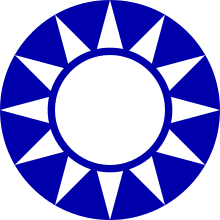
Kuomintang emblem
- The Kuomintang political party, also referred to as the Nationalist Chinese Party was founded in China by former President Sun Yat-sen. Under the leadership of Chiang Kai-shek, the Kuomintang would be the ruling political party of mainland China until 1949, and of Taiwan since then.[63]
- Italian Army Aviation Corps Lt. Piero Manzini became the first pilot to die in warfare. As part of the Italo-Turkish War, Manzini had taken off on a reconnaissance mission, when his plane's engine failed, causing him to crash into the Mediterranean Sea.[64]
- The once-prosperous copper-mining town of Eholt, British Columbia, suffered a fire that destroyed most of its business district. The Canadian Pacific Railway then moved its facilities to another location, and when the town's post office closed in 1949, there were only 17 residents left. The area is now a ghost town.[65]
- Born:
- Erich Honecker, East German Prime Minister 1976-89, Communist SED First Secretary 1971-89; in Neunkirchen (d. 1994)
- Ted Key, American cartoonist best known for creating the comic panel Hazel (d. 2008)
August 26, 1912 (Monday)
- Walter Johnson, pitcher for baseball's Washington Senators, was credited with a loss after coming in as a relief pitcher in a 4-3 defeat by the St. Louis Browns, ending his streak of consecutive games won at 16. Under modern rules, the loss would have listed as a failed save; however, Johnson's streak would still have been ended at 16 because he lost his next start in a game against the Philadelphia Athletics.[66]
- Born: Pen Tennyson, British film director and former assistant film director to Alfred Hitchcock (killed 1941 in plane crash)
- Died: Feng Ru, 30, Chinese-American engineer and pilot dubbed the "Pioneer of Chinese Aviation", in a crash during a demonstration flight of the first airplane manufactured in China.;[67] and José María Velasco Gómez, 72, Mexican painter
August 27, 1912 (Tuesday)
- The structure for the new Parliament of the Republic of China was set up by regulations issued by President Yuan Shikai. The new, bicameral legislature consisted of 596 representatives and 274 Senators.[68]
- The recently deceased Japanese Emperor Mutsuhito was, posthumously, proclaimed the Emperor Meiji.[3]
- Born: Gloria Guinness, Mexican-born English fashion icon, as Gloria Rubio y Altorre, in Guadalajara (d. 1980)
August 28, 1912 (Wednesday)
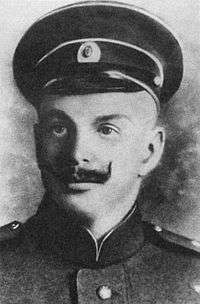
Brusilov
- Russian explorer Georgy Brusilov began a disastrous expedition to find the Northern Sea Route, setting out from Arkhangelsk in late summer on the ship Svyataya Anna (St. Anna), with a crew of 24. The ship would become trapped in the Arctic ice as it went north, then remained trapped through all of 1913. Only two crewmen, Valerian Albanov and Alexander Konrad, survived, by leaving the ship and heading south.[69] The ship and its crew were missing without a trace for almost 98 years, but in July 2010, explorers found the crew's remains and pages from a sailor's log.[70]
- Born: Tarzán López, professional wrestler who held that Mexican national championship as a welterweight luchador (1936–1939), and four American NWA world middleweight titles between 1940 and 1952; in Jerez de García Salinas (d. 1975)
August 29, 1912 (Thursday)
- Flooding in the Wenchuan County in China began, ultimately reportedly killing 30,000 people.[3]
- Claims made by entrepreneur Clarence Cunningham, to the coal fields of the U.S. Territory of Alaska, were cancelled by the U.S. Department of the Interior.[3]
- Born: Wolfgang Suschitzky, Austrian cinematographer, in Vienna, Austria-Hungary (d. 2016)
- Died: Robert R. Church, 72, African-American entrepreneur and philanthropist
August 30, 1912 (Friday)
- Rebel Mexican General Jose Inez Salazar began a campaign of forcing American residents to leave Mexico, ordering the residents of the American Mormon settlement in Colonia Morelos, in the State of Sonora, to leave the country within two weeks. General Morelo's forces would destroy the American settlements on September 12.[71]
- Born:
- Edward M. Purcell, American physicist, 1952 winner of Nobel Prize in Physics, in Taylorville, Illinois (d. 1997)
- Howard W. Emmons, American engineer and pioneer in the science of fire protection engineering, in Morristown, New Jersey (d. 1998)
- Nancy Wake, New Zealand World War II heroine, in Wellington (d. 2011)
August 31, 1912 (Saturday)
- General Leónidas Plaza Gutiérrez was inaugurated for a four-year term as the 24th President of Ecuador. President Plaza had previously served from 1901 to 1905.[72]
- Born: Katsumi Tezuka, Japanese film actor who portrayed Godzilla in three films (still alive in 2018)
References
- ↑ Edwin H. Simmons, The United States Marines: A History (Naval Institute Press, 2003) p87
- ↑ David John Lu, Japan: A Documentary History (Volume 2) (M.E. Sharpe, 1997) p389
- 1 2 3 4 5 6 7 8 9 10 11 12 13 14 15 16 17 18 19 20 21 22 23 The Britannica Year-Book 1913: A Survey of the World's Progress Since the Completion in 1910 of the Encyclopædia Britannica (Encyclopædia Britannica, 1913) pp xxxiii-xxxvi
- ↑ "Roosevelt Men Bar Southern Negroes", New York Times, August 2, 1912; "Roosevelt Insists He's Negro's Friend", New York Times, August 3, 1912
- ↑ "Turks Slew 140 Bulgarians", New York Times, August 11, 1912
- ↑ "Warning to Powers Adopted by Senate", New York Times, August 3, 1912, p2
- ↑ "Rush Gunboat to Nicaragua", New York Times, August 3, 1912
- ↑ Robert G. O'Meally, The Jazz Cadence of American Culture (Columbia University Press, 1998) p28
- ↑ "An American Force Lands in Nicaragua", New York Times, August 6, 1912
- ↑ Robert T. Davis, United States Foreign Policy and National Security (ABC-CLIO, 2010) p32
- ↑ "Young Turks Fall; Leaders Fear Jail", New York Times, August 6, 1912
- ↑ "Nine Boy Scouts Drown", New York Times, August 5, 1912
- ↑ Robert MacDonald, Sons of the Empire (University of Toronto Press, 2011) pp176-177
- ↑ "Call New Party Into Life To-day", New York Times, August 5, 1912
- ↑ "Roosevelt's Own Creed Set Forth", New York Times, August 7, 1912
- ↑ Robert P. Crease and Charles C. Mann, The Second Creation: Makers of the Revolution in Twentieth-Century Physics (Rutgers University Press, 1996) pp148-149
- ↑ Marcia Bartusiak, Archives of the Universe: 100 Discoveries That Transformed Our Understanding of the Cosmos (Random House Digital, 2006) p279
- ↑ "Roosevelt Named Shows Emotion", New York Times, August 8, 1912
- ↑ "Girls Killed at Work- Heavy Water Tank Crashes Through Roof of Pittsburgh Factory", New York Times, August 8, 1912, p2
- ↑ "Thousands Hear Wilson Accept", New York Times, August 8, 1912
- ↑ "Phonograph to Give Wilson to All of Us", ", New York Times, August 9, 1912
- ↑ "103 German Miners Killed", New York Times, August 9, 1912
- ↑ "Explosion Kills Haitian President", New York Times, August 9, 1912
- ↑ "Kaiser Praises the Krupps", New York Times, August 9, 1912
- ↑ "Earthquake Kills Hundreds of Turks", New York Times, August 11, 1912; "Earthquake Killed 3,000", New York Times, August 18, 1912
- ↑ "Earthquake Upsets a Lamp", New York Times, August 10, 1912
- ↑ Kristen P. Williams, Despite Nationalist Conflicts: Theory and Practice of Maintaining World Peace (Greenwood Publishing Group, 2001) p124
- ↑ "Senate, by 47 to 15, Passes Canal Bill", New York Times, August 10, 1912
- ↑ Panthea Reid, Art and Affection: A Life of Virginia Woolf (Oxford University Press, 1996) p136
- ↑ Kazuko Ono, Chinese Women in a Century of Revolution, 1850-1950 (Stanford University Press, 1989) p87
- ↑ "Cobb Helps Tigers Beat Syracuse", New York Times, August 13, 1912
- ↑ Al Stump, Cobb: A Biography (Algonquin Books, 1994) pp11-12
- ↑ Sean Peter Kirst, The Ashes of Lou Gehrig and Other Baseball Essays (McFarland, 2003) pp13-18
- ↑ "Polio victim's life honored with scholarship", by Wayne Quesenberry, Wytheville (VA) Enterprise, August 8, 2012
- ↑ "Morocco's Sultan Will Abdicate", New York Times, August 12, 1912
- ↑ Thammy Evans, Macedonia (Bradt Travel Guides, 2010) p118
- ↑ Marcel Haas, Russian Security and Air Power, 1992-2002 (Frank Cass, 2004) p106
- ↑ Stuart Oderman, Roscoe "Fatty" Arbuckle: A Biography of the Silent Film Comedian, 1887-1933 (McFarland, Jul 31, 2005) pp41-42
- ↑ "Seven Put to Death in One Hour at Sing Sing", New York Times, August 13, 1912; Scott Christianson, Condemned: Inside the Sing Sing Death House (New York University Press, 2001) p4
- ↑ Anthony J. Rudel, Hello, Everybody!: The Dawn of American Radio (Houghton Mifflin Harcourt, 2008) pp16-17
- ↑ "200 Killed in Battle", New York Times, August 13, 1912
- ↑ Alisa Freedman, Tokyo in Transit: Japanese Culture on the Rails and Road (Stanford University Press, 2010) p285
- ↑ William Spence Robertson, History of the Latin-American Nations (D. Appleton and Company, 1922) p284
- ↑ "Two Generals Shot by Order of Yuan", New York Times, August 17, 1912; "Killing May End Chinese Republic", New York Times, August 19, 1912
- ↑ "Capt. Lord's Story Interests London", New York Times, August 18, 1912
- ↑ "Roosevelt Opens Campaign To-Day", New York Times, August 16, 1912, p4
- ↑ "Turks Massacre Women", New York Times, August 17, 1912
- ↑ "Negro Murderess Executed", New York Times, August 17, 1912
- ↑ "Darrow Acquitted; May Be Tried Again", New York Times, August 18, 1912
- ↑ A. Tom Grunfeld, The Making of Modern Tibet (M.E. Sharpe, 1996) p66; "China Cannot Have Tibet, Says Britain", New York Times, August 30, 1912
- ↑ Anna Di Lellio, The Case for Kosova: Passage to Independence (Anthem Press, 2006) p55
- ↑ Mark L. Winston, Nature Wars: People Vs. Pests (Harvard University Press, 1997) p27
- ↑ "Becker Indicted With Six Others; Jury Applauds", New York Times, August 21, 1912
- ↑ "Frenchmen in Moors' Hands", New York Times, August 26, 1912
- ↑ Thomas K. Park and Aomar Boum, Historical Dictionary of Morocco (Scarecrow Press, 2006) p153
- ↑ "Anniversary: The Strange Case of Bobby Dunbar", by Jeff Baker in The Old Farmer's Almanac 2012 (Houghton Mifflin Harcourt, 2011); "DNA clears man of 1914 kidnapping conviction", USA Today, May 5, 2004
- ↑ W. Steven Pray, A History of Nonprescription Product Regulation (Haworth Press, 2003) p52
- ↑ J. H. W. Verzijl, International Law in Historical Perspective: State Territory (Brill Archive, 1970) p236
- ↑ Ronald N. Johnson and Gary D. Libecap, The Federal Civil Service System and the Problem of Bureaucracy: The Economics and Politics of Institutional Change (University of Chicago Press, 1994) p80
- ↑ Ryan Madden, On-the-Road Histories: Alaska (Interlink Books, 2005) p131
- ↑ Kermit "Kit" Bonner, Final Voyages (Turner Publishing Company, 1997) p175
- ↑ "Massacre by Turks Inflames Servia", New York Times, August 26, 1912
- ↑ Suisheng Zhao, A Nation-State by Construction: Dynamics of Modern Chinese Nationalism (Stanford University Press, 2004) p81
- ↑ Patrick Robertson, Robertson's Book of Firsts: Who Did What for the First Time (Bloomsbury Publishing USA, 2011)
- ↑ Garnet Basque, Ghost Towns & Mining Camps of the Boundary Country (Heritage House Publishing, 2007) p122
- ↑ Ted Leavengood, Clark Griffith: The Old Fox of Washington Baseball (McFarland, 2011) p98
- ↑ Wright-Brothers.com
- ↑ James Z. Gao, Historical Dictionary of Modern China (1800-1949) (Scarecrow Press, 2009) p119
- ↑ Valerian Ivanovich Alʹbanov, In the Land of White Death: An Epic Story of Survival in the Siberian Arctic (Random House Digital, 2000, with introduction by David Roberts)
- ↑ "Russia finds last-days log of famed 1912 Arctic expedition", Agence France-Presse, September 13, 2010
- ↑ John Mason Hart, Empire And Revolution: The Americans in Mexico Since the Civil War (University of California Press, 2006) p290
- ↑ William Spence Robertson, History of the Latin-American Nations (D. Appleton and Company, 1922) p399
This article is issued from
Wikipedia.
The text is licensed under Creative Commons - Attribution - Sharealike.
Additional terms may apply for the media files.